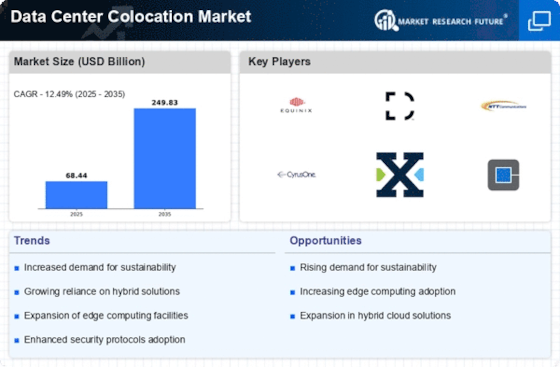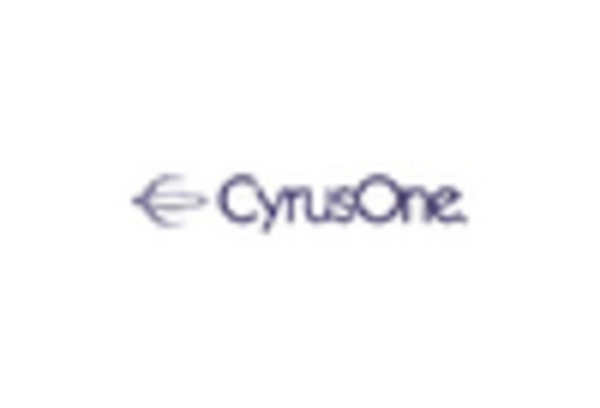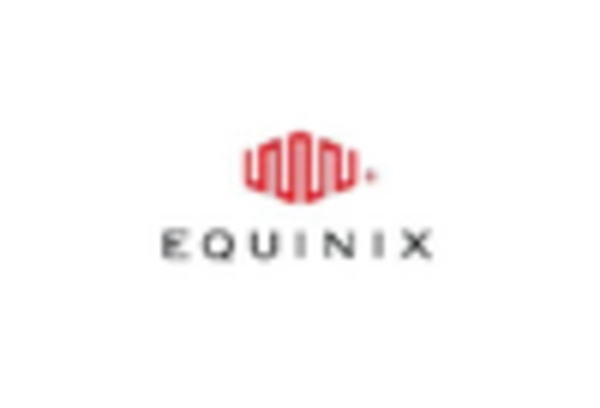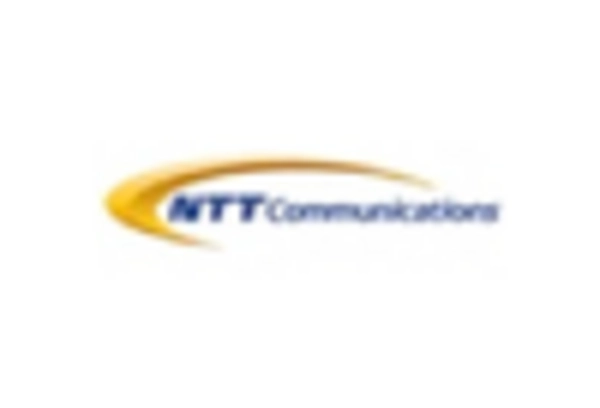Market Analysis
In-depth Analysis of Data Center Colocation Market Industry Landscape
In order to expand and develop, there are numerous factors that stimulate the Data Center Colocation market. One of the main drivers for this market is the growing need for IT infrastructure solutions that can be altered depending on demand. As businesses evolve and undergo digitalisation, they have a greater reliance on data centres that can handle various workloads and adapt to changing needs. To overcome these issues colocation providers have come up with shared facilities where businesses can base their servers and IT equipment allowing them to scale without constructing and running private data centers. Technological developments largely shape dynamics in the Data Center Colocation market. The complexities associated with maintaining IT infrastructure as well as the rise of cloud computing, edge computing, artificial intelligence among other emerging technologies necessitate advanced data centre services. These technology trends should be understood by colocation providers so as to ensure that their clients’ facilities are always state-of-the-art meeting growing business demands which enable them access most recent innovations devoid of complex management procedures. Cost consideration is a vital factor when it comes to choosing collocation services for any business provided. Creating an internal server farm means hefty capital budgeting at first with continuous operational overheads thereafter. Conversely, customers who rent out cages at co-location facilities only pay for power consumed, storage space used or network bandwidth utilized. The result is a highly efficient model for spending on IT resources whenever required while utilizing managed professional data center services having security requirements in place. Security and reliability are fundamental market factors influencing the Data Center Colocation industry. With the increased frequency and sophistication of cyber-attacks companies prioritize data privacy. With adequate physical measures such as card readers at doors or guards inside these premises, service providers offer optimal security conditions with no compromises on clients’ proprietary information. Geographical location is another critical factor shaping the Data Center Colocation market. To achieve the best performance and minimize latency, colocation facilities should be situated near businesses and end-users. Companies that are focused on digital services improvement for their clients often prefer to accommodate data centers in major hubs of commercial activity or places where the population is dense. Market competition and the vendor landscape also influence the growth and development of the Data Center Colocation market. More new entrants have resulted in very fierce competition across this industry which has seen service offerings being revamped, different pricing models being used as well as companies embracing sustainability initiatives. By offering value-added services such as managed services, connectivity options and environmental sustainability initiatives, collocation providers strive to outperform one another concerning client preferences.
Regulatory compliance is an integral market factor, especially in regions where data protection and privacy regulations are stringent. Therefore there must be a high level of adherence to these rules for individual data center co-location operators to ensure that every transaction involving their clients’ information is dealt with securely. In regulated industries, selecting one location over another depends on how well a provider can navigate through various regulatory frameworks all over the world.



















Leave a Comment